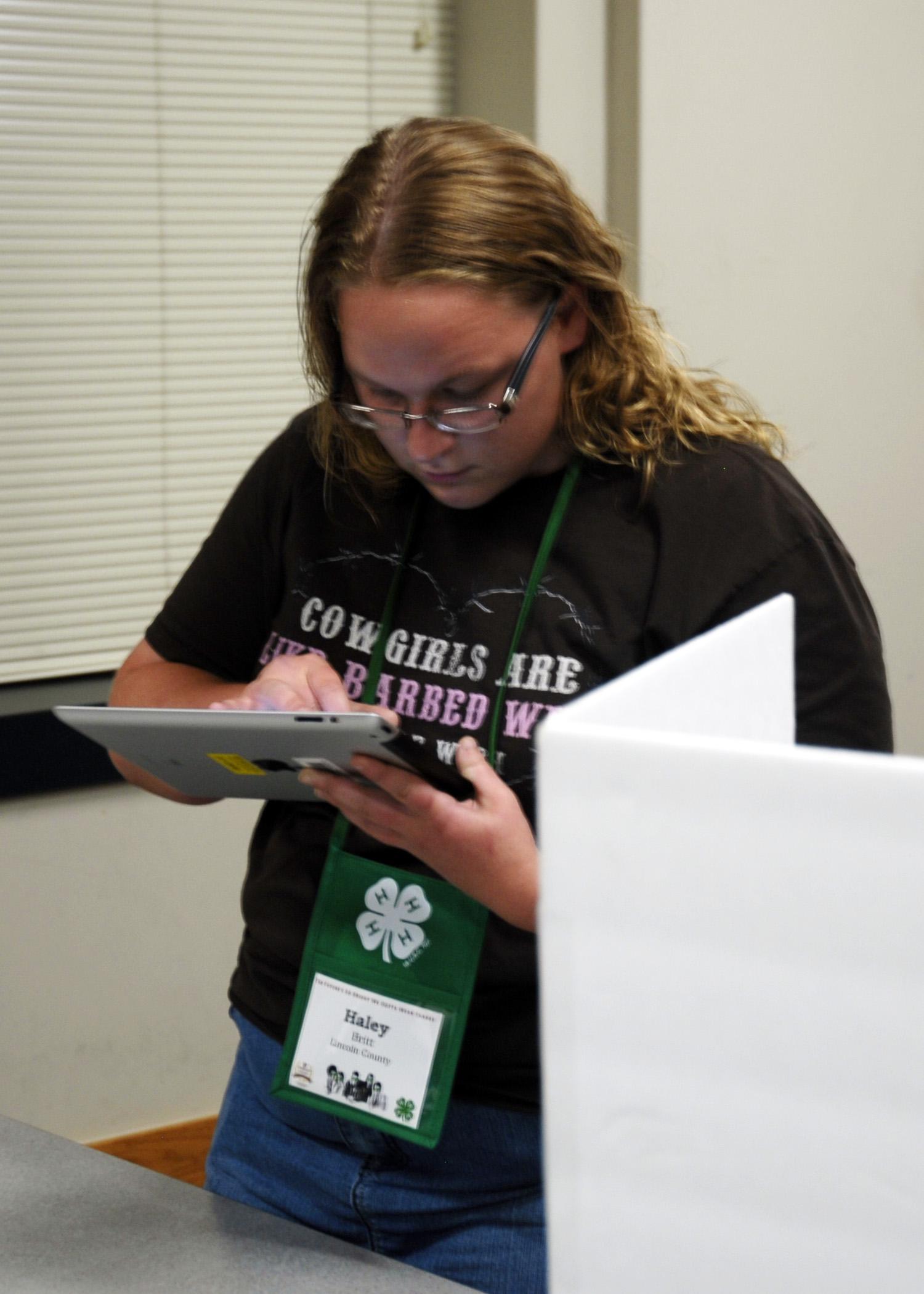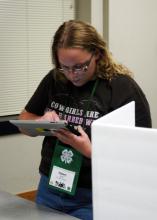Information Possibly Outdated
The information presented on this page was originally released on May 30, 2014. It may not be outdated, but please search our site for more current information. If you plan to quote or reference this information in a publication, please check with the Extension specialist or author before proceeding.
4-H'ers learn about voting, gain citizenship skills
MISSISSIPPI STATE -- Terence Norwood understands that “Making the Best Better” starts with individuals who are determined to make a difference.
That’s why he worked to radically change the voting process at the 4-H State Club Congress, an annual event that brings the state’s top 4-H’ers to the Mississippi State University campus for three days of workshops, competitions, performances and elections.
Norwood is an instructor for the MSU Extension Service’s Center for Government and Community Development. He’s also a former State 4-H Council officer and 4-H agent in Jefferson Davis County.
Norwood and colleagues in the Extension Center for Technology Outreach and the Center for Government and Community Development worked with Extension evaluation experts to move from a system of tabulating more than 3,000 responses by hand to a touchscreen computer program. Election results can be tabulated instantly instead of in hours.
More than 500 voters typically come out to cast ballots for the State 4-H Council officers.
“Touchscreens are more closely aligned with the equipment available in local elections,” Norwood said. “Voting is an important component of adult life, and this was a perfect opportunity to teach a life skill. These kids campaign just as hard as anyone who runs for public office, and using technology speeds the process.”
For the pilot in 2013, Norwood and Extension instructor Dale Jordan made voting booths with iPads to give voters privacy and enhance the voting experience. This year, they used a combination of iPads and laptops so Club Congress attendees could vote in the allotted time.
Paula Threadgill, Extension associate director, said Norwood’s experiment was a tremendous success for both the 4-H’ers and the staff involved in the election.
“The Extension agents love it because technology is integrated into the lives of young people,” Threadgill said. “The state-level staff love it because there’s greater accountability, there are no lost ballots, and they can easily tally the votes. It saved hours of time.”
At the elections on May 28, voters embraced the move to technology.
“It was a lot faster,” said State 4-H Council President Mary Kate Gaines of Tate County. “The volunteers don’t have to count every single individual vote. It’s neat.”
To vote, 4-H’ers had to check in with poll workers and show their ID badge.
“This is a way to educate our young people about the new voter ID law,” Norwood said. “Many of them will be able to vote for the first time this year, and by helping create that experience in a familiar environment, they may be more confident about going to their local polling place to vote.”
Norwood’s determination to get 4-H’ers involved in government and community development did not end with the voting process. He also served as the contest chair for a new event at Club Congress: the Citizenship Bowl, which is designed to increase knowledge and understanding of our roles in the lives of others and society.
“Research shows there’s no organized effort to educate young people about local government,” he said. “Often local government is the one people interact with the most, but it’s the hardest to see at work because it’s so close to us. We don’t notice who is putting up stop signs or filling pot holes.”



